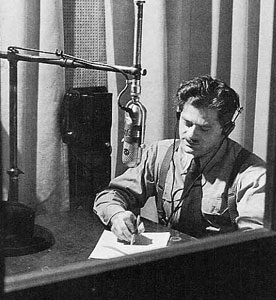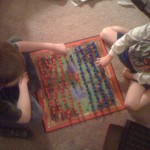 Sex Ed, World Religions
Sex Ed, World Religions  4 Comments
4 Comments To my friends, who are exactly as they should be
Today is the Transgender Day of Remembrance. I don’t want to diminish the grief and anger that is right and righteous at the discrimination, mistreatment, ignorance, imprisonment, torture, and killing of transgender people one bit — we need every single ounce of that outrage to keep fighting for a more just and welcoming world.
But today, I want to count my blessings more than my tears.
I consider myself incredibly fortunate to have several trans friends. Some are new acquaintances, some I’ve known for almost 20 years. Among them are scholars, writers, counselors, teachers, and public servants. Some are activists; some expend all their available energy to fight the battles in their own lives. I’ve held hands and marched with them. I’ve shared dinners and debates with them. I’ve sat through long nights, separated by miles but joined by phone lines or computer screens, bearing witness to the confusion, pain, and sorrow that comes in crushing waves.
They make me feel so, so lucky. Lucky not to have to fight and explain why I am who I am — lucky that they count me a friend.
I’ve never had a moment of doubt with them. It’s very simple: each one is precisely who they are meant to be. I couldn’t imagine calling them or seeing them as anything but the person they are, because the beacons of their souls shine so clearly and brightly. Refusing to accept something that so obviously is what it is would be absurd. There’s a name for doing that: delusion.
Trans people pay an enormous price when they stop resisting the voices, internal and external, that insist that they be something they’re not. But it hasn’t always been that way. A variety of cultures, across time and distance, haven’t just not repressed or reviled trans people; they valued them as closer to the universal sacred. They walk between worlds, working the shadowy seam of human existence. It’s no great leap to think they have insight or power over other liminalities.
So today, as I light a candle for my friends whom I treasure — some I’ve come so terrifyingly close to losing to the darkness — and for those whose family and friends’ lights were extinguished, I do it with the words of this prayer by Rev. Amy Zucker Morgenstern from “We Pray: Prayers To and For the Transgender Community”:
“To all trans and other folk who are hurting and afraid, I wish you peace and happiness. No god worthy of our worship could do anything but love you, and no true church could ever exclude you. I feel very blessed to share this life with you.
The Hindu god Indra is said to have created reality as a great net, with jewels at each intersection of the threads. Every jewel is reflected in every other, and they are all connected by the infinite, intricate web. The jewels are sacred and so is the net that connects them. And so I pray:
Dear God, you are the between-spaces of our lives. Where one hand reaches to touch another, you are there. Where eyes meet across the crowd and confusion and find understanding, you are there. Where the spark leaps from one mind to ignite another, that is you. Wherever we connect, you are the connection.
Each of us is a jewel in Indra’s net, shining like dew in a spider’s web. Praise to you, the web that connects us one to another!
When we are in the in-between, on our way from the intolerable to the unknown–
When we defy the categories that small minds invent and dare to imagine something beyond–
When we seek others who are on a journey, on a threshold, on the margins, any of the shimmering intersections of our lives–
When we listen to the possibilities whispered within and step into mystery, with trust, with fear, with trembling– may we find peace, for we dwell in your sacred place.”
To my brave, beloved friends, you have my love, my gratitude, my admiration. Be good to yourself, for you are nothing but good to me.


